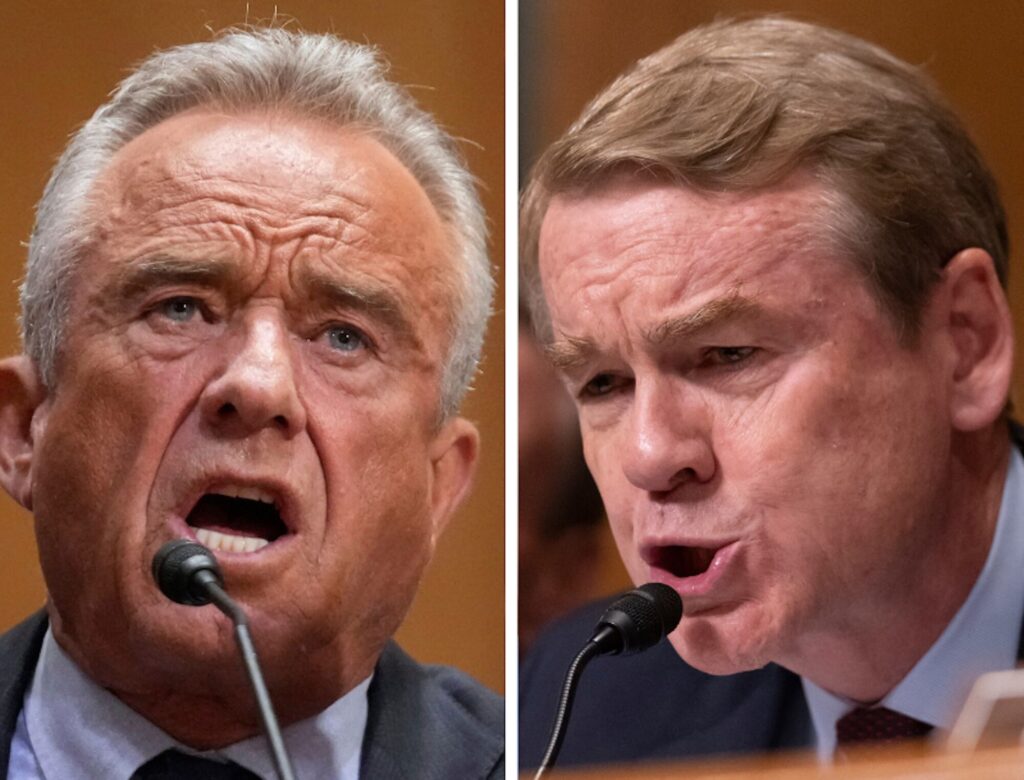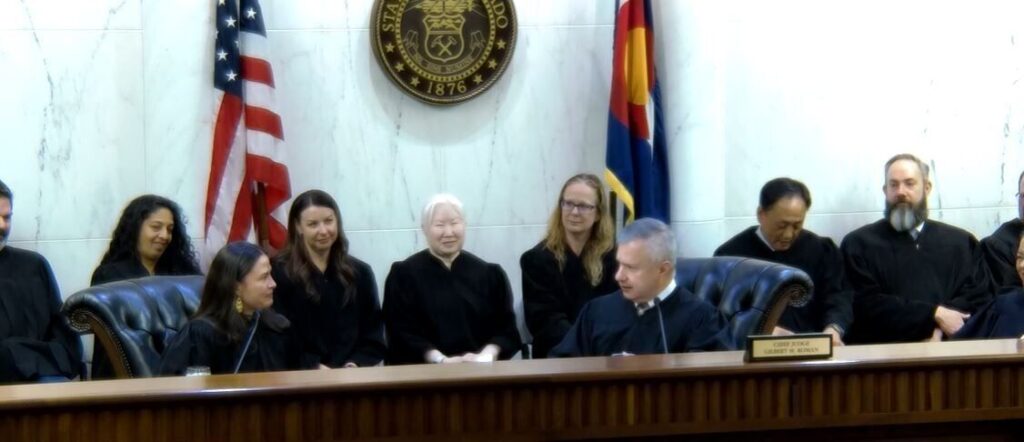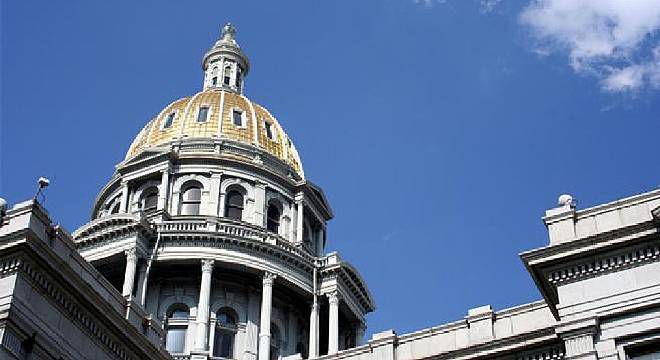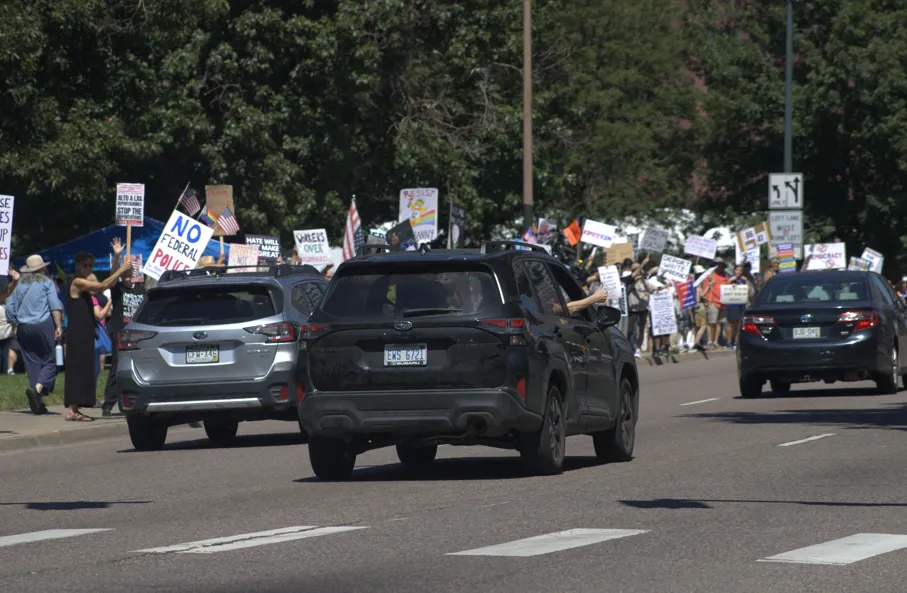YESTERYEAR: Romer squares off with Legislature over welfare reform
Twenty Years Ago This Week in The Colorado Statesman … The possibility of a special session loomed large as Gov. Roy Romer said he would veto a welfare reform bill that let some counties opt out of statewide benefit standards.
“If we have to have repeated special sessions to get the job done, so be it,” Romer said at a news conference just hours after the state Senate approved a conference committee compromise that provided for a pilot program of at least four counties that could set their own benefit levels.
The choice then was left to House Speaker Chuck Berry, R-Colorado Springs, who was the chief sponsor of House Bill 97-1166, to either invite the veto by urging passage of the conference report, or call for another conference.
“I will not give in on the pilot project issues,” Romer said. “It’s not the time of my life when I’m going to yank the floor out from what I think are very deserving people to get through a session.” Romer — and the Legislature — had only 19 days left in the session with which to work.
Romer said he would “veto the bill today if I had it,” and that he was announcing the veto “in the spirit of compromise” so a start could be taken “on the next step.”
State Sen. Mike Coffman, R-Aurora, sat in on the news conference as a co-sponsor of the contentious bill. Also there, Berry, who originally wanted to give all benefit-setting authority to counties, pointed to the Aurora legislator and said that Coffman was “very resolute about the pilot project.” The project had been requested by Weld, El Paso and Arapahoe Counties.
Romer said there must be “a guaranteed minimum benefit for all the counties as a safety net for children.” He ticked off several compromise provisions, like cash allowances, which were lower than he wanted. “But I can live with that,” said Romer. But Romer said he could not compromise any more on the statewide benefit level.
But it wasn’t just the one issue that was bugging the governor. Romer also talked about the possibility of calling a special session to reform the tax system. A proposed constitutional amendment and referred law to scrap property taxes for schools were pending, though they were likely to die in committee.
In other news, Colorado state Treasurer Bill Owens told the American Consulting Engineers Council of Colorado that additional taxes on gasoline to pay for new roads might sound good, but they really weren’t necessary.
Owens debated Steve Coffin, former co-chair of Romer’s Blue Ribbon Panel on Transportation, and a founding member of the Colorado Transportation Network. Coffin and other CTN members wanted to add an additional tax of five cents per gallon on gasoline to the November ballot as well as boosting the annual auto registration to $10. The CTN proposal would also increase auto registration fees by $100 for cars new to Colorado highways, registered by recent arrivals or other vehicle owners who weren’t simply replacing an older model.
The money, Coffin said, would go to pay for $2 billion worth of the most desperately needed highway projects. He added that the new taxes would automatically cease after 10 years.
“I come to this with the perspective of somebody in the business community trying to find a solution to this problem,” said Coffin, who was vice president of government and public affairs for the Colorado Interstate Gas Company. “I served for one and a half years as co-chair of the Blue Ribbon Panel. In our study of the state’s transportation problems we reached a number of conclusions …We need to spend $8 billion at the state level and $5 billion at the local level for city streets. We learned how we got in this box.”
Coffin said state demographics showed that not only were there more people using Colorado roads but that people were driving more in general. Coffin also said that state general fund dollars for highways had been declining steadily and the road quality had gone with them.
To that point, Owens readily agreed. He noted that from the 1960s until 1985, a bill originally sponsored by Sen. Dan Noble, R-Norwood, earmarked taxes raised through the sale of automobiles and auto supplies for the Highway Users Trust Fund (HUTF). At that time, those funds could be used only to build and maintain highways, and the state’s roads were in good shape, Owens said.
Owens also noted that Colorado’s economy hit rock bottom in the mid-1980s, so the Legislature repealed the Noble Act in 1986. It put auto tax dollars in the state’s general fund where they could be used for anything.
“Unfortunately, many of those entities which have enjoyed those funds have opposed putting those dollars back in to the Highway Users Trust Fund,” Owens said. “The HUTF was 11 percent of the total budget in 1985, but only six percent now. We don’t have a problem with the revenues in the state budget, it’s how we’ve allowed the revenues to be allocated that’s the problem.”
Owens then said that if the Noble Act was reinstated, and there were an additional $150 million per year in surplus funds, the state could raise up to $5.8 billion for highway improvements over the next 20 years. “The state’s budget this year is $9.5 billion. If you inflate that by six percent a year, you get a total of $370 billion over 20 years. We need only $8 billion of that to meet the state’s share of highway needs.”
… Ten Years Ago This Week … After months of fighting and weeks of careful negotiation, it looked as though a truce had been reached in the battle to reform the oil and gas industry in Colorado. The accord became official when HB 07-1341, backed by Gov. Bill Ritter, and almost all of the Capitol Democrats, was amended by Republicans to remove a key provision that would’ve required companies to extract fossil fuels in ways that would produce the least amount of waste possible.
“We’re very pleased with this outcome. We’ve made enormous progress,” said Harris Sherman, the director of the Colorado Department of Natural Resources. “It’s been a give and take process. I think industry is more comfortable about what’s been said, and I think the public interest has been well served.”
The Senate State, Military and Veterans Affairs Committee voted unanimously to send the bill to the Appropriations Committee after adding multiple amendments but leaving intact the main thrust, which would change the makeup of the Colorado Oil and Gas Conservation Commission from seven members to nine.
The bill also required that no more than three of the members have backgrounds in the oil and gas industry as opposed to the then current five. Under the bill, the other six members would include Sherman as the director, one local government official, one expert in wildlife issues, one expert in land reclamation, one mineral rights royalty owner and the director of the Department of Public Health and Environment, which in 2007 was James Martin.












